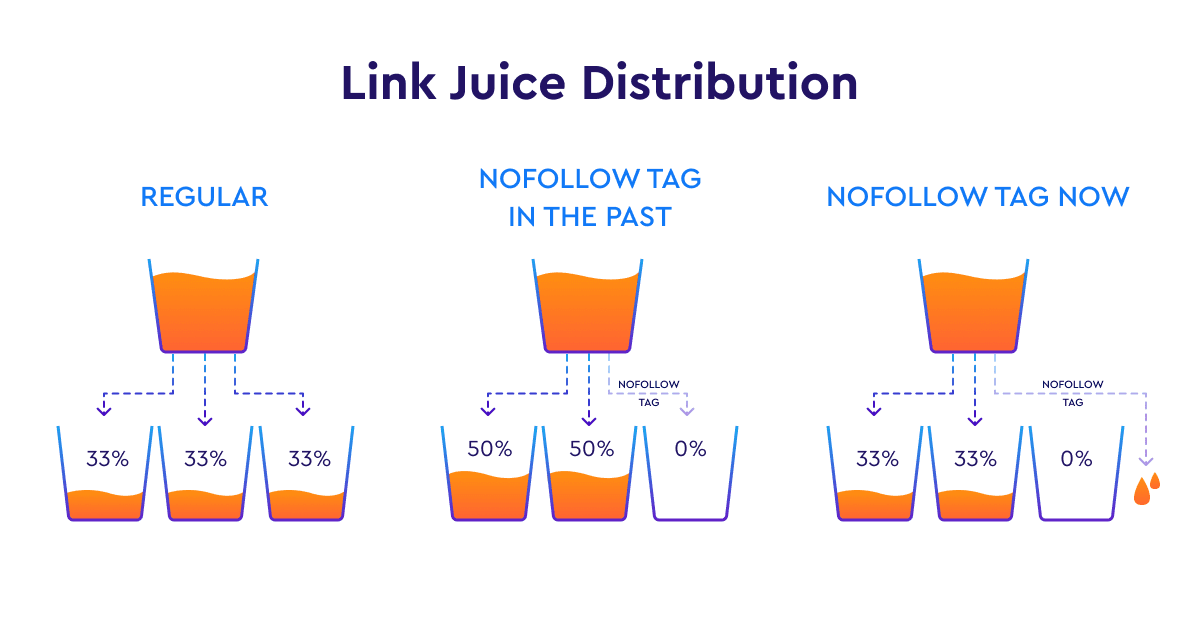Link juice is the power of a page based on the number and quality of links it receives. This power is passed to other pages that are linked to it.
It is possible to waste link juice. For example, a website may have links to addresses, logins, and terms of use that do not need to rank in Google. This can be avoided by using the “no follow” attribute. Read on Rank Boss for more information.
While on-page and technical SEO are important, high-quality links are what make your website stand out from the competition. This is because search engines consider every link to a site to be a vote of confidence from another website, which is why quality links are so valuable. To generate this link juice, you must build links from reputable websites and ensure they are relevant to your industry. Moreover, you should regularly monitor the quality of your links to identify any low-quality links and disavow them before they can negatively impact your SEO rankings.
To get the most link juice, you should focus on creating links to pages with high PageRanks. This will increase your chances of ranking higher in search engine results pages (SERPs). You can also try to expand or update existing content to make it more link-worthy. For example, you can turn a “top 10” list into a “top 20” or add additional examples and details to a popular blog post. This will make your content more valuable and link-worthy, which may attract other websites to link to it.
Another way to measure link juice is by looking at the page’s authority. While this is a little tricky because many factors affect a webpage’s authority, you can use SEO tools to help determine its quality. For instance, Moz and Ahrefs provide a number of metrics that can give you a rough idea of a page’s quality.
The type of links you choose to build will also influence how much link juice is passed. For example, a follow link will pass more link juice than a nofollowed one. It is also important to choose the right anchor text, as this will affect how much link juice is passed. A keyword-rich anchor text will give more value to a link than a keyword-stuffed one.
You should also keep in mind that not all pages have the same amount of link juice. In fact, some pages have more than others. This is because some pages have more incoming links than others. For example, if you receive a link from a web page on digital marketing tactics, this will be a highly-relevant link and will pass more link juice than a link from a webpage on Margherita recipes.
High-authority links
Having high-authority links is important for SEO because they can help your website improve its rankings and increase the number of visitors it receives. However, it’s important to avoid linking to low-quality content because it can actually decrease your website’s ranking potential. In addition, you should avoid too many outbound links on a page because it can overwhelm the reader and devalue your link juice.
The best way to get more link juice is to produce quality content and promote it using various channels. For example, you can host guest blogs on other websites to generate quality backlinks and build brand awareness. You can also engage in relationship building by reaching out to other website owners in your niche and establishing rapport. This can lead to the creation of new backlinks, which will increase your website’s authority and boost its page rank.
You can also use content curation sites to generate more link juice, such as Rebelmouse, Authorstream and Storify. However, be careful when linking to these sites because too many outbound links can affect your website’s ranking and cause Google to see it as a spammy link. In addition, if you link to irrelevant pages, you may get a manual penalty from Google for manipulating its algorithm.
Another way to create link juice is by using the right keywords in your content. It is important to use relevant keyword phrases that target your audience’s search terms and are highly targeted to the topic of your article. This will ensure that your content is visible to your target audience and improves your chances of getting more clicks and engagement.
Lastly, you can also use social media to boost your search engine optimization efforts. Social media sites like Twitter and Facebook can help you connect with other people in your industry, which can help you generate more link juice. The more social shares you get, the better your website will perform in search engines.
You can measure the amount of link juice a site has by looking at its Domain Authority (DA) and Domain Rating (DR). These metrics are used by major SEO software companies, such as Moz and Ahrefs. The higher the DA and DR, the more link juice it has.
Internal links
In an attempt to improve search engine rankings, many marketers focus on acquiring high-quality backlinks. However, it’s important to understand that not all backlinks are created equal. Some can be more valuable than others, depending on the page’s content and its relevance to a specific search query. It’s also important to avoid using unethical tactics to manipulate link juice, as this can result in a penalty from search engines.
Internal links are one of the most effective ways to generate link juice. They allow you to direct your link equity to pages on your site that need it the most. They can also help you rank pages that are difficult to attract links, such as commercial or informative pages.
When used properly, internal linking can be a powerful tool for increasing your search engine rankings. By using a logical, structured structure, you can maximize the benefits of your link equity. This strategy also allows you to distribute your link juice more evenly throughout your website, improving the performance of all pages.
A page’s ranking is determined by the number and quality of the inbound links it receives. The more and higher-quality inbound links a page has, the better its ranking will be. However, if you want your pages to have a good chance of ranking well, they must contain relevant and high-quality content.
There are many different ways to generate links, including blog commenting, guest blogging, social media marketing, and press release publishing. However, these methods should be accompanied by a solid link building strategy to increase your chances of success. The best way to generate links is to write excellent content that is useful, unique, and relevant. It should also be optimized for keywords and have a proper structure.
Link juice is a term used to describe the power of a website based on the number and quality of inbound links. This power is passed on to outgoing links, which helps them rank higher in search engine results pages.
The amount of link juice a webpage passes depends on several factors, including the authority of the linking site and the number of inbound links. For example, a page from a high-authority domain will pass more link juice than a page from a low-authority domain. The amount of link juice a page receives also depends on whether the links are dofollow or nofollow. In the past, it was possible to use nofollow links to control how much link juice a particular page received. This technique was known as PageRank sculpting, and it was a common practice among SEOs.
Nofollow links
The concept of link juice is an important part of search engine optimization (SEO). It refers to the value that one website passes on through its links to another. This value can increase a page’s ranking in search engines, and it is a key factor in how well a site ranks on the SERP.
A high-quality website has a higher domain authority, which means that it is more likely to rank well on the SERPs. In turn, this gives it more link juice. A good way to increase the amount of link juice on your website is by building internal links. This can be done by adding links to your homepage from relevant pages on your site. This will send more of your link juice to your internal pages and will help them rank better.
However, be careful not to overdo this, as it could dilute the link juice of your other links. Also, avoid using nofollow links unless necessary. Nofollow links don’t pass link equity, and may even harm your SEO. Nofollow links are often used to stop spam comments and link schemes. In addition, they can also be used to stop other sites from passing link juice to your site.
In order to maximize your link juice, it is crucial to build quality inbound links. These can come from directories, blogs, and social media sites. In addition, it is also important to use a range of different types of links. The more varied your inbound links are, the more juice you will pass.
One way to generate more link juice is to create a “top 10” list that is linked to by other websites. This strategy is called the skyscraper technique, and it can lead to a significant increase in your website’s traffic. It is important to note that this method is not foolproof, and it requires a significant amount of time.
Many website owners overlook the fact that their pages already have reservoirs of link juice they can tap into. This is usually the case with pages that have been around for a long time and have a lot of inbound links. This is because a page’s authority grows over time, and the more links it has, the more equity it will pass on to other pages.

